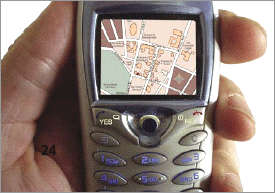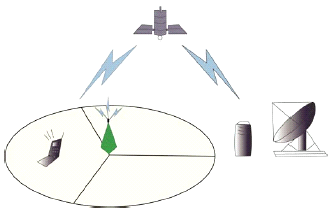| Navigation | |
It’s all about Location… NAVIGATOR
|
||||
| The past decade has seen a quantum jump in mobile usage driven by two factors – one on the basic premise that almost everyone talks and walks and secondly, the underlying technology that has enabled this communication revolution. Mobile location based services (LBS) appear to be one of the next natural steps in our move towards a truly unwired, permanently connected society.
The ability to link a user’s content and personalized services with his geographic location was envisaged to be a killer application, but was until recent times only a dream due to lack of technology right across the LBS value chain and interoperability– the positioning technology, handset limitations, network limitations and lack of compelling underlying geographic content. But, the last couple of years have seen extremely successful implementations by carriers worldwide including prominent ones like NTT DoCoMo, KDDI in Japan, SK Telecom in South Korea and Verizon in the US. the handset is becoming more of an extension of the self
There have been two major methods to locate a handset. One is the network centric one to use the network to triangulate and locate the handset. A key benefit of network-centric solutions is that all handsets can utilize the positioning technology without modification. But network solutions are expensive since each base station must be upgraded— and they are less accurate. The other approach is to have the autonomous positioning capability (like GPS) embedded within the handset. This gives a high accuracy (< 5m), but is severely plagued with poor time to fix, high power consumption and the need to upgrade the handset to support positioning. A hybrid approach is what is adopted wherein the assistance comes in from the network and the handset positions itself. Having obtained the position information, using it to offer the right proposition to the customer is very critical. While applications like location based billing are dependent on a seamless integration with the existing systems, majority of applications are dependent on accurate and extensive spatial information. By spatial information we mean a base map with respect to which we define the location and the spatial layers on the map that define items like restaurants, ATMs, customer demographics, etc. While the map is one aspect, the spatial layers are only limited by the kind of application we intend to deploy. This process of collection is painstaking, extensive and cannot be done by any one agency. This brings us to the challenge of designing the LBS to obtain information from multiple sources with location information appended to it. For example, a news reporter would now not only send news but also send it with location information that can be interpreted by the system without any manual intervention. This asks for standards to be adopted by every information source. Similarly, there are standards required by the application to interface with the positioning technologies, billing systems and privacy information databases.
Conceptually, applications may be the same, but there are numerous challenges for success in the Indian context. For example, navigation applications abroad give directions based on street names. In India, where street names are limited or inconspicuous, directions using landmarks would be more effective. Another innovation could be to have vibratory and voice prompts to continually track progress and guide the user. The quality of the map, comprehensive landmark data and ability to support natural interfaces is extremely important. The kind of applications that can be deployed is only limited by the imagination of the developer but of course is driven the business viability of each one of them. With the advancement of technology, the handset is becoming more of an extension of the self, continually using the location information to perform various operations. Navigator is a pseudonym of our contributing author. talktous@mycoordinates.org |
||||













 (No Ratings Yet)
(No Ratings Yet)




